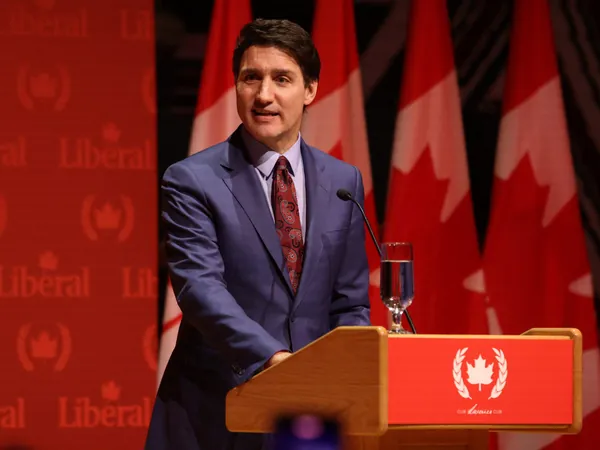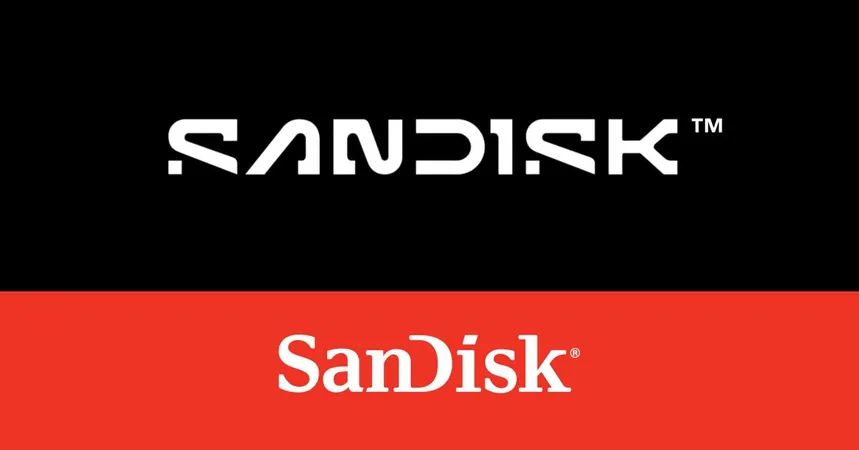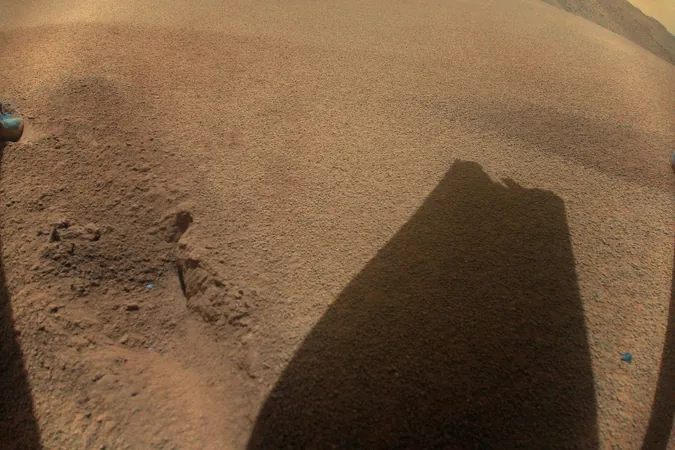
Trudeau's Political Predicament: Will He Resign or Stand Firm Amid Surging Pressure?
2024-12-18
Author: Charlotte
As Canadian Prime Minister Justin Trudeau faces mounting calls for his resignation, the political landscape in Canada is shifting rapidly following the unexpected exit of a close ally. Chrystia Freeland, the finance minister and Trudeau's second-in-command, announced her resignation earlier this week, citing deep disagreements with the Prime Minister on crucial issues such as US President-elect Donald Trump’s proposed tariffs on Canadian goods.
Freeland’s departure has intensified scrutiny of Trudeau's leadership, which has been faltering due to soaring living costs and a persistent housing crisis. Trump's proposed 25 percent tariffs, unveiled late last year, have unleashed a wave of criticism directed toward Trudeau, with opposition members and even some within his Liberal Party urging decisive action to safeguard the economy.
In light of these developments, Canadian media speculate on Trudeau's potential paths forward given the urgency of the political climate. Here are some of the pressing options on the table:
1. The Resignation Dilemma
Trudeau, who has been Prime Minister since 2015, may opt to resign as leader of the Liberal Party. This scenario would trigger an internal election process to appoint a new leader, but with a federal election looming before late October 2025, the timeline for such a transition is incredibly tight. Political historian Robert Bothwell warns that if more Liberal ministers choose to step down, Trudeau's position would become untenable, forcing him to resign.
2. Pressure from Liberal Party Members
While Trudeau has no formal mechanism requiring him to leave if he refuses, a significant faction within the Liberal caucus could exert mounting pressure on him to step aside. Although thirteen Liberal MPs have publicly called for his resignation, many continue to express loyalty, complicating the party's internal dynamics. Environment Minister Steven Guilbeault reinforced this sentiment, stating, “It’s his decision. It’s always been his decision,” although dissenting voices, like MP Chad Collins, have voiced the need for a new direction.
3. The Threat of No Confidence
The Liberal Party currently holds a minority in Parliament, leaving them particularly vulnerable to a potential vote of no confidence from the opposition. The left-leaning New Democratic Party (NDP) has been supportive of the Liberals so far, but NDP leader Jagmeet Singh believes it's time for Trudeau to go, expressing frustration over the internal conflicts within the party that detract from addressing Canadian needs.
With Parliament set to adjourn for its winter break, the earliest opportunity for a confidence vote may be on the horizon when lawmakers return on January 27. Should the opposition manage to unite against Trudeau, there’s a very real potential for triggering an early federal election, which would further complicate Trudeau’s political future.
4. Holding the Line: Possible Strategies for Trudeau
If Trudeau decides to remain at the helm, he faces the challenge of unifying his party ahead of the crucial elections. One option could be proroguing Parliament, effectively pausing the current legislative session and giving his government a chance to regroup and present new initiatives. This would, however, only serve as a temporary fix while delaying the inevitable challenges ahead.
Trudeau also possesses the power to dissolve Parliament and call an election at any time, a path fraught with risk given the current polling, which sees the Liberal Party trailing significantly behind the Conservative Party. Analysts warn that barring a remarkable turnaround, a shift in government could be on the horizon.
With the political stakes as high as ever, Trudeau's next moves could determine not only his own political future but also the trajectory of Canadian governance in the face of rising economic pressures and public discontent. As the political landscape continues to evolve, all eyes will remain on Ottawa, awaiting Trudeau’s next step amid the whirlwind of uncertainty.









 Brasil (PT)
Brasil (PT)
 Canada (EN)
Canada (EN)
 Chile (ES)
Chile (ES)
 España (ES)
España (ES)
 France (FR)
France (FR)
 Hong Kong (EN)
Hong Kong (EN)
 Italia (IT)
Italia (IT)
 日本 (JA)
日本 (JA)
 Magyarország (HU)
Magyarország (HU)
 Norge (NO)
Norge (NO)
 Polska (PL)
Polska (PL)
 Schweiz (DE)
Schweiz (DE)
 Singapore (EN)
Singapore (EN)
 Sverige (SV)
Sverige (SV)
 Suomi (FI)
Suomi (FI)
 Türkiye (TR)
Türkiye (TR)